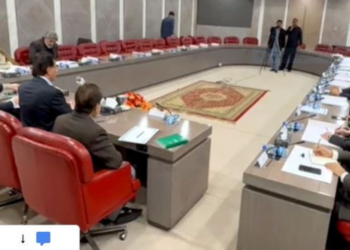Islamabad, September 13, 2024-Constitutional expert Hafiz Ehsaan Ahmad Khokhar of Advocate Supreme has raised significant concerns about the legality of the National Assembly Speaker’s recent move to designate Parliament lodges as a sub-jail. Khokhar asserts that while the Speaker is authorized under Rule 108 of the Rules of Procedure and Conduct of Business in the National Assembly, 2007, to issue production orders for Assembly members, this does not extend to declaring any location as a sub-jail.
Khokhar explained that the authority to establish and oversee sub-jails is solely vested in the provincial governments, or in the case of the capital, the Interior Ministry, District Administration, and is governed by laws such as the Prisons Act of 1894. The recent decision by the Speaker to designate Parliament lodges as a sub-jail in response to opposition demands is viewed by Khokhar as a political maneuver rather than a legally sanctioned action.
He said that under sections 4, 7, and 13 of the Prisons Act of 1894, and in accordance with the Punjab Prisons Rules of 1977, only provincial governments have the power to set up and manage various types of jails, including sub-jails. These sub-jails can be established in locations like police stations, hospitals, or government buildings, primarily for logistical or security reasons.
Hafiz Ehsaan Ahmed noted that the establishment of sub-jails is typically accompanied by a gazette notification, and any legal disputes regarding their use are subject to judicial review to ensure the protection of fundamental rights, including the right to a fair trial. Sub-jails are managed by officials appointed by the provincial government or prison department and are subject to the same regulations as regular prisons.
Mr. Khokhar emphasized that while the Speaker of the National Assembly has the power to issue production orders, the authority to declare any location a sub-jail lies with the executive branch or provincial government, and such decisions should be made in accordance with the Prisons Act of 1894.









